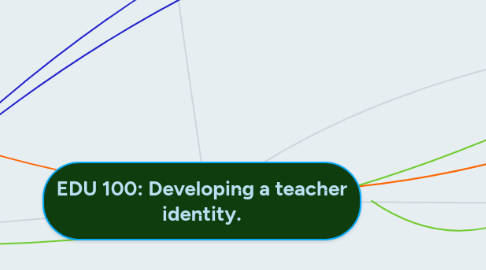
1. Historical
1.1. Eugenics
1.1.1. Rob Wilson-Guest Lecture on Eugenics (2014): maintain desired traits in human populations by eliminating undesired traits (feeble-mindedness) through sterilization.(Sexual Sterilization Act 1928) (also connect to socio)
1.1.2. Surviving Eugenics video: learn about the physical and emotional effects of sterilization
1.2. History of Education
1.2.1. Sager, E (2012): discusses the social and economic conditions and factors which contributed to the feminization of teaching in in early twentieth century.
1.2.1.1. Gender inequality: mentions that the average annual earnings of women teachers were half those of male teachers
1.2.2. Kachur & Harrison (1999): education reforms, privatization of education by Klein government
1.2.2.1. Increased cost of school
1.2.2.2. entry of business into educational institutions
1.2.2.3. increased parental involvement
1.2.2.4. curriculum becomes centralized
1.2.2.5. more focus on standardized testing
1.2.2.6. Globalization: an increase in competitive individualism
1.2.3. Mark Yurik Guest Presentiation: discussed the history of education in Alberta and the role of the ATA.
1.2.4. Dr. Frank Peters Guest Presentation: discussed the historical development of education in Canada. Education in Canada is provincial. Alberta has various educational systems: public, private, charter, denominational
2. Philosophical
2.1. In class videos on different teaching styles: observed different approaches to teaching
2.2. Philosophy Chapter 2 reading: describes the different educational philosophies and psychological approaches to teaching
2.3. Wartenburg, T. Picture Book Philosophy (2011): discusses the importance of encouraging children to learn effective communication skills and strategies
2.4. Inclusive education website: supplies information about various learning disabilities
2.4.1. In class discussion: current move towards inclusive education changed teachers role: have greater responsibility to meet the many needs of diverse learners
2.5. Robinson,K. Changing Education Paradigms(2010) video: discusses the current traditional form of education does not reflect current society.
2.5.1. example of changing role of students: need for more divergent thinkers
2.5.2. example of changing role of teachers
2.6. Giving Tree (2007): offering a philosophical approach allows us to integrate different approaches to education. Connects the pychological processes of students to larger issues around learning and philosophy.
2.7. Classroom Management Theories
2.8. Kids Dialogue about Philosophical Dialogue video: encourages children learn how to express their thoughts, use respectful language and effective communication skills
3. Sociological
3.1. Diversity Issues
3.1.1. In class activity-What kind of car are you?: exemplified that diversity exists within labeled or categorized groups.
3.1.2. Education and Diversity: Framing the Issues reading:
3.1.2.1. Hidden Curriculum
3.1.3. In class activity-Points of Privilege Checklist: helped develop a personal reflection about our race, the subtle forms of racism and the social system that it supports
3.2. Aboriginal Education
3.2.1. Indian Residential Schools: removed Aboriginals from their families and attempted to culturally assimilate them into Canadian society
3.2.1.1. IRS are example of Cultural Eugenics- "breed the indian out of them"
3.2.1.2. Building Bridges reading: importance of teaching and nurturing the cultural and spiritual knowledge (Aboriginal ways of knowing) in traditional academic schools.
3.2.2. King, Thomas (2011), The Truth About Stories: A Native Narrative: discusses Aboriginal ways of knowing in comparison to non-Aboriginal.
3.2.3. In class discussion-Truth and Reconciliation: discussed the impact IRS has had with current Aboriginal generations. Has created issues regarding identity confusion,cultural and heritage loss and alcohol and substance abuse
3.3. Gender Issues
3.3.1. In class discussion: discussed how male teachers often feel under scrutiny in elementary schools. Some feel the pressure to increase their masculinity in predominately "feminized" setting.
3.3.2. Guest Speaker Malinda McNie-LGBTQ: discusses the implementation of GSAs into public schools. They are safe spaces for students to express and find support and challenge issues such as homophobia.
3.3.2.1. during presentation we discussed appropriate language to use when referring to sexual/gender minority groups
3.3.3. In class activity-Group Case studies: discussed and shared different approaches to handling sexism, and gender issues in the classroom
